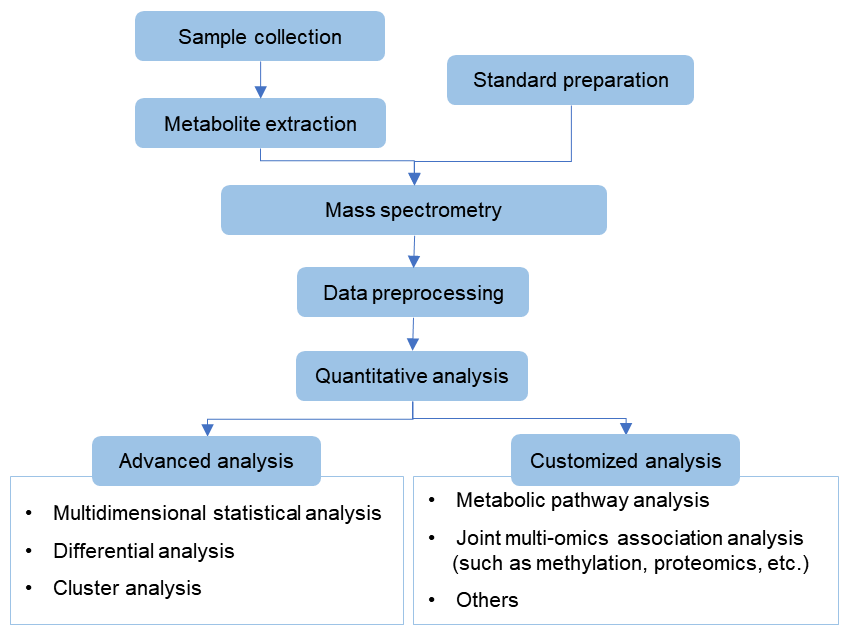v-innovate Technologies' targeted metabolomics services target specific metabolites and pathways of interest, which can accurately monitor dynamic metabolic processes, reveal related metabolic mechanisms and verify potential metabolic biomarkers, to guide your research with reliable and accurate measurement results.
Monocrotaline is an alkaloid extracted from the seed of the Crotalaria spectabilis plant in Legumes.
Monocrotaline has many English aliases, such as crotaline; (13-alpha,14-alpha)-14,19-dihydro-12,13-dihydroxy-20-norcrotalanan-11,15-dio; (13-alpha,14-alpha)-14,19-Dihydro-12,15-dione.
The chemical formula of monocrotaline is C16H23NO6, and the CAS number is 315-22-0.
Monocrotaline a natural ligand exhibits dose-dependent cytotoxicity with potent antineoplastic activity.
MS-based technical means can realize the qualitative and quantitative analysis of monocrotaline.
 Molecular structure of monocrotaline
Molecular structure of monocrotaline
Design experiments and sample processing
Standard preparation and mass spectrometry detection, and make standard curve
Extraction of metabolites in samples and mass spectrometry detection, and raw data preprocessing
Qualitative and quantitative of target metabolites
Bioinformatics analysis (PCA analysis, cluster analysis, difference analysis, etc.)

| Sample demand |
| Fresh and clean plant / animal samples > 1 g, freeze-dried sample > 0.5 g Animal body fluid samples > 200 µl Stool, etc. > 100 mg |
| Sample mixed and repeat |
| Each sample was mixed from more than 6 same condition samples, and quickly put into liquid nitrogen. ※ The same condition refers to the same period, basically the same phenotype, and the same part. It is recommended that prepare more than 6 biological replicates. |
| Storage and transportation |
| Quick-frozen preservation with liquid nitrogen can minimize the leakage time of plant samples at room temperature, and store it at -80℃. Dry ice transportation (about 3~4kg dry ice is consumed every day, please use sufficient dry ice for transportation). |

A standard experiment and analysis process takes about 1-4 weeks.
v-innovate Technologies offers several approaches to plant metabolomics studies, delivers precise and detailed data and analysis report. We can also customize the methods or establish new methods together with our collaborators, so they are fit-for-purpose and meet your specific needs. If you have any questions or specific requirements, please feel free to contact us.
References
